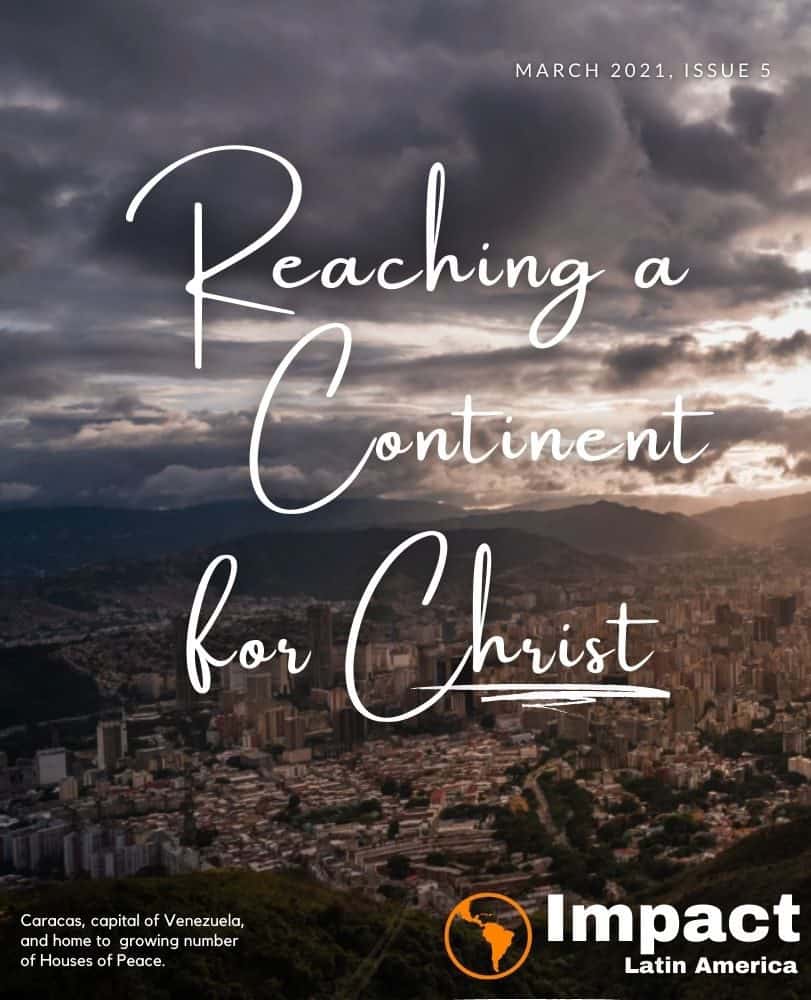
This movement started with a vision: to reach a continent for Christ. That vision might seem like an ambitious grasp for power if not for one critical detail: Jesus Christ. In a world where leaders are too often demagogues or dictators, Jesus’ leadership turns our grasp for power and control upside down. Washing feet, feeding hungry crowds, and suffering upon a cross all point to a different kind of leadership: self-emptying service.
At Impact Latin America, this is the kind of leader we train and support. Pastor Casto Rojas is such a leader: giving himself in developing others. A leader like this can reap a harvest of thousands and so it is with Pastor Casto. The fruits of his leadership are spread throughout the continent, aided by an unexpected ally: a refugee crisis. Read on to learn more.
Casto Rojas had it all. In his forties, he was a pediatrician in Venezuela, one of the wealthiest countries in Latin America, and a doctor for the government owned company that controlled the largest oil reserve in the world.
And yet, as it so often happens, his personal life was in shambles. His marriage was failing, his family disintegrating. At home, all his efforts turned to ashes. One day, his misery was so deep that he drove around the city of Maturin where he lived trying to think of a way to end his life that would not bring his family shame. As he did, he drove past a church where, two years before, he had dropped off supplies for the church’s small medical clinic. Recognizing it, he pulled into the parking lot and went inside.
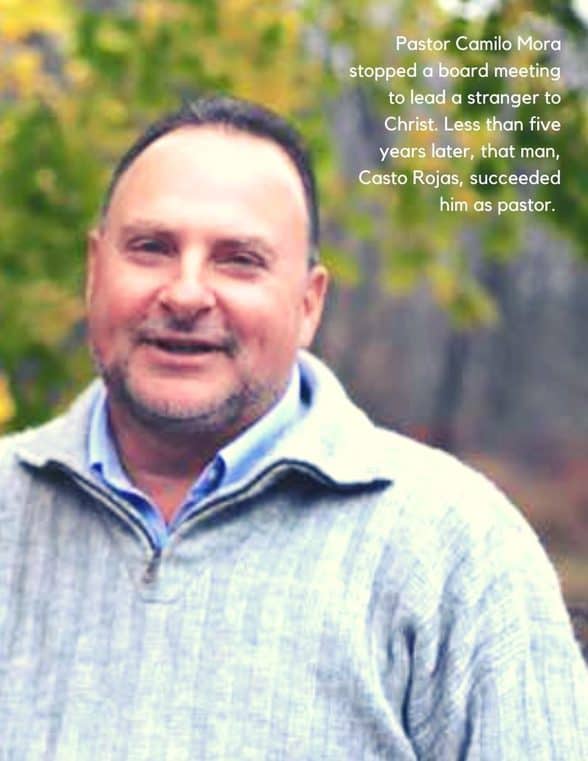
Casto knew so little about Christianity or church that he knew nothing about how it worked. It wasn’t Sunday. Instead, the church board was gathered on the stage in the sanctuary conducting their regular meeting. Seeing him come in, Pastor Camilo Mora paused the meeting and walked over to Casto. They talked for almost two hours and by the time he left, Pastor Camilo had invited him to know Jesus and to come back for church. Casto did come back and that very first Sunday, he gave his life to Jesus. He knew his life must change and Jesus was the only hope he had to bring himself into alignment.
Afterward, Pastor Camilo took Casto under his wing, discipling and guiding him. He grew quickly in faith and maturity so much that, less than five years later, Pastor Camilo asked Casto to be his successor as pastor of the church: A Dios Sea la Gloria.
When Casto became Pastor Casto, A Dios Sea la Gloria had 35 members and was the only Free Methodist church in Venezuela. Less than five years later, a handful of churches had been planted and Pastor Casto became the district leader.
He could see talent in people long before they could see it in themselves. By 2010, he had raised up 12 ordained ministers and another 52 ministerial candidates. Together, those leaders had founded eight established churches and seven church planting projects. Among these churches, there were 553 members, another 581 in preparation for membership, and 1,117 youth. Under his leadership, the Free Methodist Church in Maturin went from 35 to thousands in less than ten years.

That was just the beginning. That same year, he attended the seminal meeting in Costa Rica where, together with the district leaders from 10 other countries, he adopted the vision “to fuel and sustain a biblical movement to reach Latin America for Christ.” Clearly, Pastor Casto understood that multiplying the church meant multiplying leaders but the meeting sparked a new vision: decentralize the church. They would reach a continent for Christ not in large church buildings but in homes.
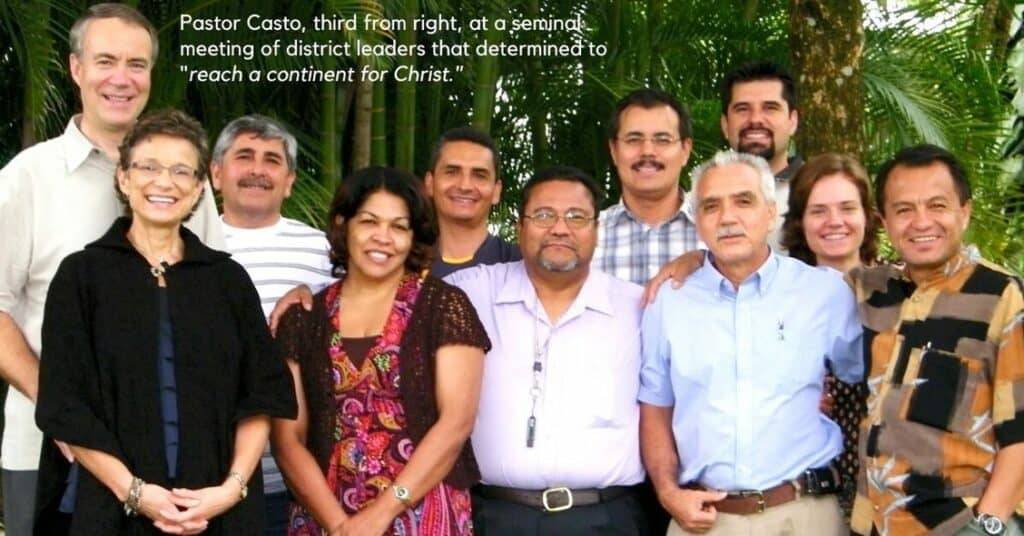
He went back to Matuin and immediately put this new strategy to work. By the time the Community Church Planting model was found and materials adapted two years later, they served to clarify and strengthen an already established network of Houses of Peace.
Prior to this, Venezuela’s standard of living was one of the highest in Latin America. Education and income levels were relatively high with a growing middle class. But, with an economy heavily dependent on oil, the economy nearly collapsed when oil prices dropped. As the crisis worsened they feared the government might seize the assets of the churches – including church buildings.
As other leaders grabbed for power, Pastor Casto had already given it away. The church was already a network, not a building. Without knowing it, God had prepared the way for the church to survive and – not only that – to thrive.
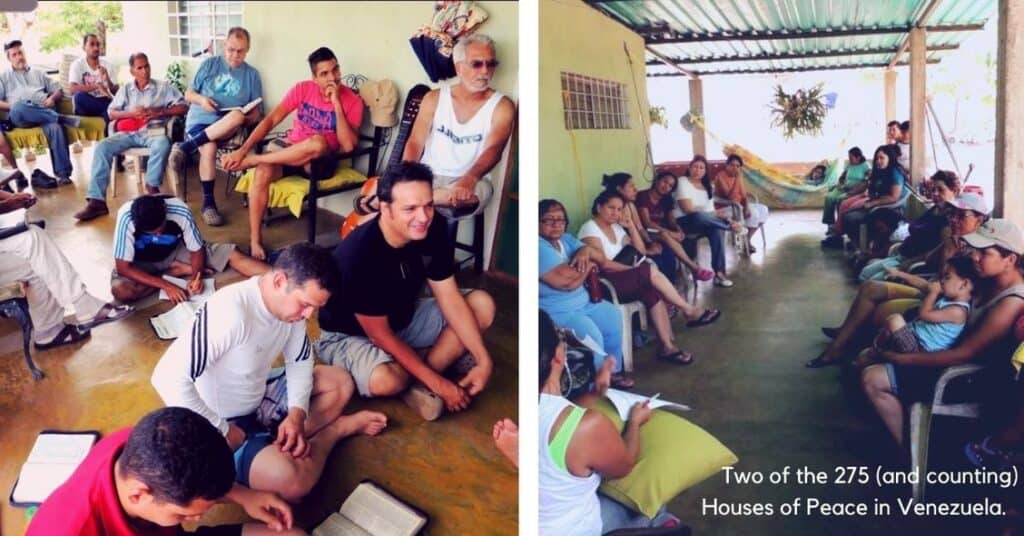
Today, throughout Venezuela, there are now 14 established churches, each with its own network of Houses of Peace. In the last three years, at least 275 Houses of Peace have started – each representing new groups of new believers in new communities. Hundreds — and perhaps thousands — have come to Christ.
Meanwhile, one of the greatest socioeconomic and political crises in the history of the Western hemisphere has been unfolding. Corruption and mismanagement have led to chronic shortages of food and medicine, unemployment, and allegations of human rights violations.
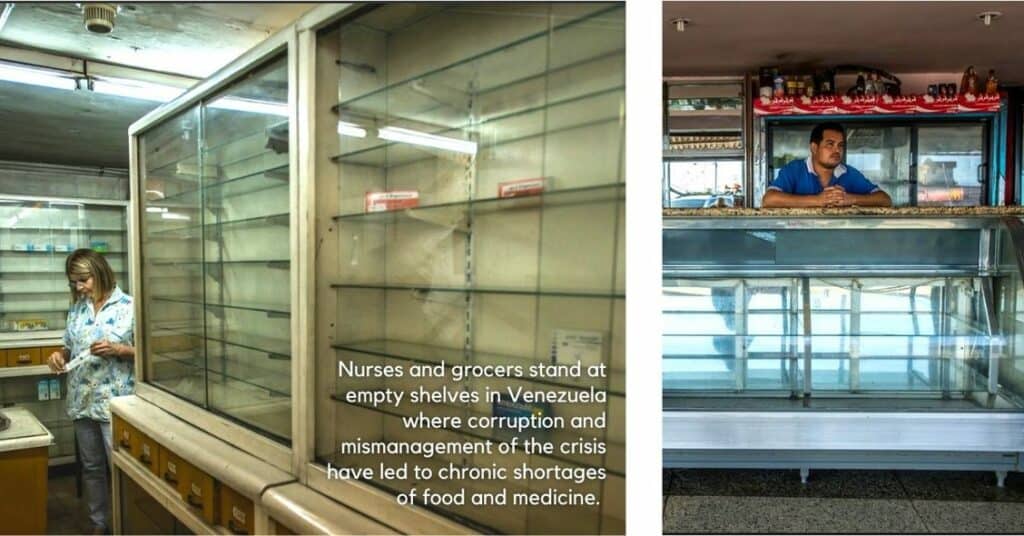
Over 4 million Venezuelans have emigrated, mostly on foot, and among them are the scores of leaders that Pastor Casto has trained. Inadvertently aided by disaster, diaspora and Jesus’ self-emptying model of leadership, Pastor Casto seeded an entire continent with other fruitful leaders.
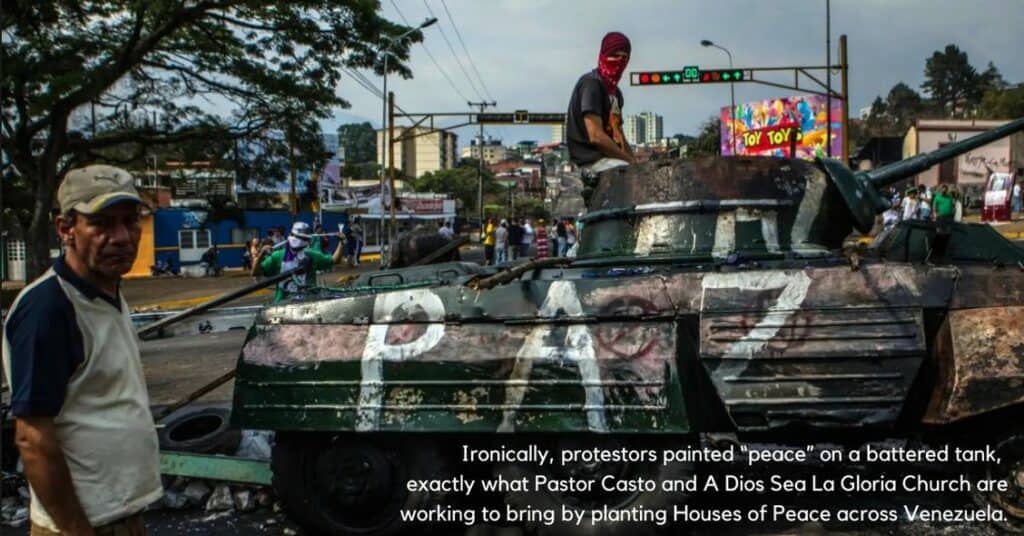
It bears mentioning that these leaders are not just men. In a culture that often passes leadership down the family line from father to son, Pastor Casto, like Jesus, recognizes leaders regardless of blood line or gender. Ynelitza Sanabria Evans is the Community Church Planting (CCP) Coordinator for the 12 networks and 172 Houses of Peace in the Maturin and the surrounding area.
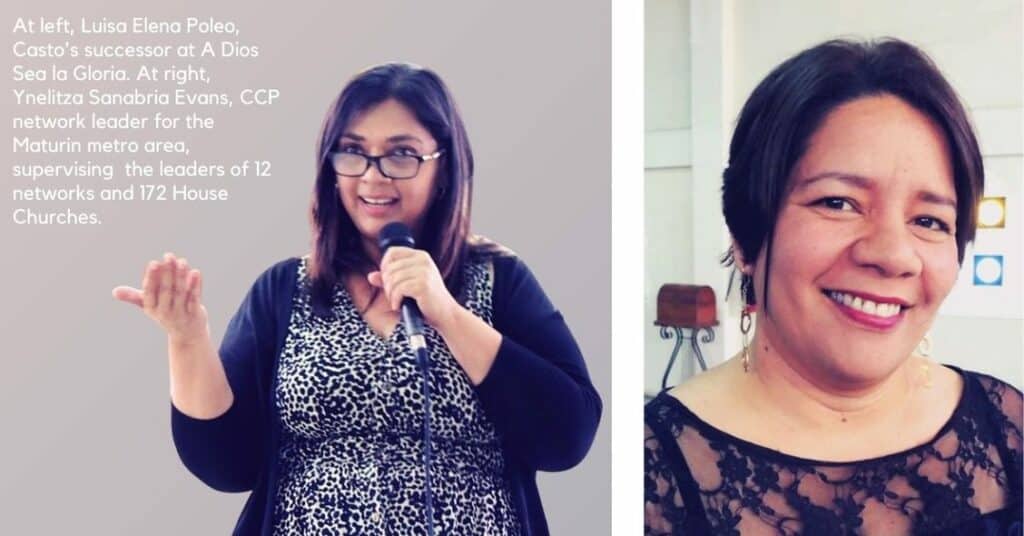
In fact, a female leader he developed, Luisa Elena Poleo, has replaced him as lead pastor at what is now one of the largest Free Methodist churches in all of Latin America: A Dios Sea la Gloria. While Pastor Casto continues to serve as the Superintendent of the Free Methodist Church in Venezuela, he is free to do what he does best, mentor and supervise leaders throughout the continent.
At last count, over half of the 507 Houses of Peace CCP has planted are in Venezuela. Following Jesus’ model of leadership, Pastor Casto is already seeing the multiplication of disciples, leaders and churches to the fourth and fifth generations.
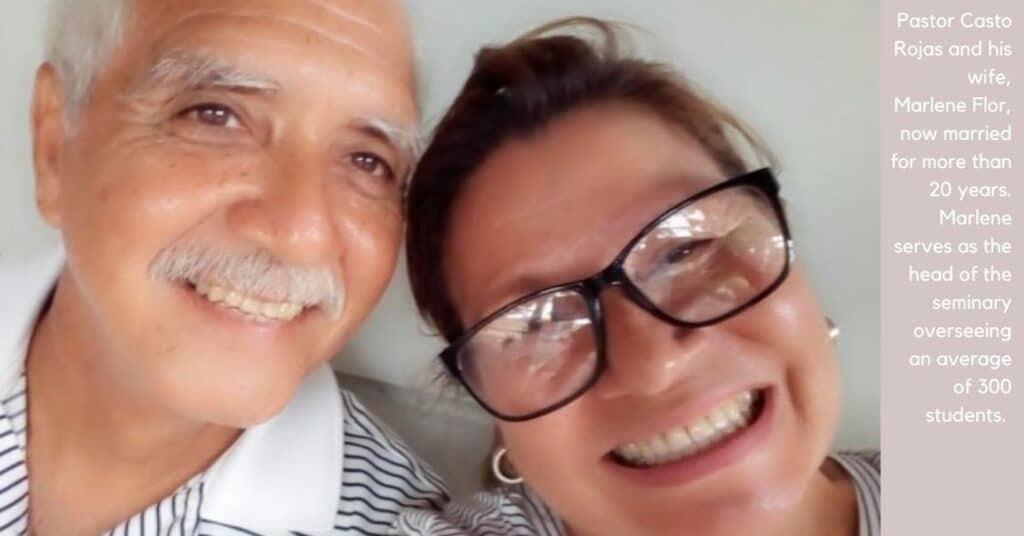
Despite all this, what is truly remarkable is that Pastor Casto is not unique. What we see now in Venezuela is what we expect to see throughout Latin America in five to ten years as CCP principles continue to multiply to the fourth and fifth generation – and beyond.
Jesus is the model for leadership for all those we train and support at Impact Latin America and the only one worthy of an audacious vision –to reach a continent for Christ.
